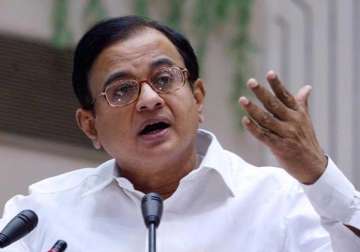Washington, July 10: At a time when Indian rupee is a record low, Finance Minister P Chidambaram has arrived here to not only address the US concerns on India's economic policies, but also pitch among investors for a fresh wave of foreign direct investment in key sectors like infrastructure.
On a four-day trip to Washington, his second in less than six month, Chidambaram is primarily here to deliver keynote address at the 38th annual leadership summit of the US-India Business Council and meet his American counterpart Jack Lew.
He is also scheduled to meet a host of American corporate leaders and lawmakers, who of late have been highly critical of some of the Indian policies in particular those related to intellectual property rights and foreign direct investment.
However, the decision of Prime Minister Manmohan Singh to put on hold the contentious Preferential Market Access (PMA) policy is expected to give Chidambaram some comfort level in responding to the charges of the American corporate sector and lawmakers. The move has been welcomed by the US industry.
The finance minister, who arrived here yesterday, is scheduled to meet industry representatives later today.
He is expected to meet the leading US business leaders including Brad Smith, Microsoft`s General Counsel and Executive Vice President, Legal and Corporate Affairs; Pat Dewar, CEO, Lockheed Martin International; Scott Price, CEO, Asia, Walmart; Henri Croupon, CEO, ILFC and Sheperd W Hill, president, Boeing International.
Chidambaram is likely to discuss the issue of investment by US companies in India especially in infra sector, various policy measures taken by the government to boost investment in the country and tax related matters among others.
Before leaving for India, he is also scheduled to meet Senator Max Baucus, Chairman, Senate Finance Committee and Senator Mark Warner, Co-Chair, Senate India Caucus.
Chidambaram has been pitching for increased foreign investment into India, especially in the infrastructure sector. Also to attract overseas funds, the government has liberalised FDI norms in various sector including multi-brand retail and aviation.
India requires investment to the tune of $1 trillion in the 12th Five Year Plan ending March 2017 for development of various infrastructure projects.
The share of infrastructure investment in GDP is planned to be increased to more than 10 per cent by the end of the 12th Plan. The government has recently set up a Cabinet Committee on Investment for speedy clearance of large infrastructure projects.
Latest Business News
